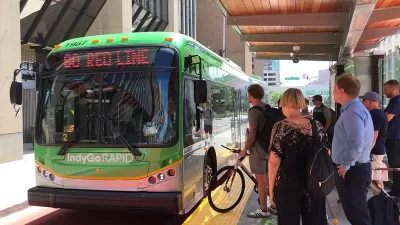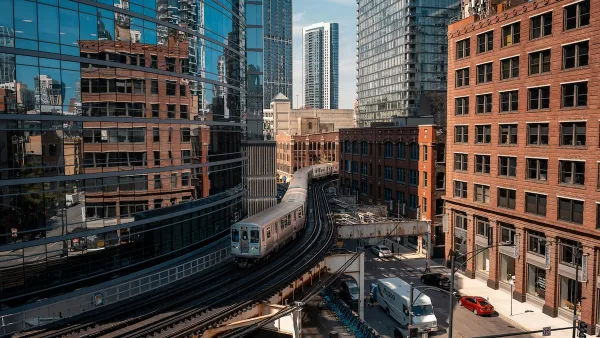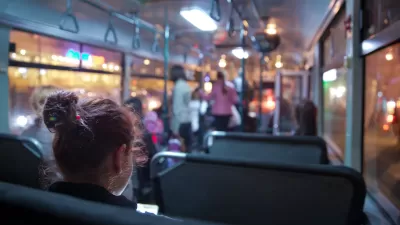Transit investments in Marion County, Indiana, could be funded through a proposed increase of income taxes. The proposed funding referendum has the backing, and the phone-banking, of a coalition of local church congregations.
"For a group of Indianapolis faith leaders, better public transportation means more than adding a few new buses to an old system," according to an article by John Tuohy.
Specifically, the "ministers, priests and pastors in the Indianapolis Congregation Action Network (IndyCan) have launched a three-month campaign to pass a voter referendum to fund mass transit improvements in Marion County," reports Tuohy. IndyCan advocating for the transit funding referendum in support of the belief that transit provides sorely needed resources to low income people—especially access to jobs, healthcare, and fresh food.
Volunteers for IndyCan will be working phone banks four nights a week until Election Day, Nov. 8, calling registered minority voters in low- and moderate-income neighborhoods. They will encourage the voters to back the ballot measure to raise income taxes by 0.25 percent, or 25 cents per $100, to raise $56 million per year for IndyGo, the city bus service.
The new transit funding is necessary for IndyGo to expand service hours and frequencies. Also needing the funding: "the electric bus rapid transit Red Line and two other proposed lines, the Purple and the Blue." Tuohy, along with Biran Eason, also reported on the transit referendum when it was approved for the ballot in May.
It's not just the faith-based community that supports the transit referendum, the business community does as well, writes Tuohy. The Indy Chamber, which represents 2,500 businesses, is also planning a publicity campaign in support of the referendum.
FULL STORY: Faith leaders push transit referendum

Maui's Vacation Rental Debate Turns Ugly
Verbal attacks, misinformation campaigns and fistfights plague a high-stakes debate to convert thousands of vacation rentals into long-term housing.

Planetizen Federal Action Tracker
A weekly monitor of how Trump’s orders and actions are impacting planners and planning in America.

San Francisco Suspends Traffic Calming Amidst Record Deaths
Citing “a challenging fiscal landscape,” the city will cease the program on the heels of 42 traffic deaths, including 24 pedestrians.

Defunct Pittsburgh Power Plant to Become Residential Tower
A decommissioned steam heat plant will be redeveloped into almost 100 affordable housing units.

Trump Prompts Restructuring of Transportation Research Board in “Unprecedented Overreach”
The TRB has eliminated more than half of its committees including those focused on climate, equity, and cities.

Amtrak Rolls Out New Orleans to Alabama “Mardi Gras” Train
The new service will operate morning and evening departures between Mobile and New Orleans.
Urban Design for Planners 1: Software Tools
This six-course series explores essential urban design concepts using open source software and equips planners with the tools they need to participate fully in the urban design process.
Planning for Universal Design
Learn the tools for implementing Universal Design in planning regulations.
Heyer Gruel & Associates PA
JM Goldson LLC
Custer County Colorado
City of Camden Redevelopment Agency
City of Astoria
Transportation Research & Education Center (TREC) at Portland State University
Jefferson Parish Government
Camden Redevelopment Agency
City of Claremont





























